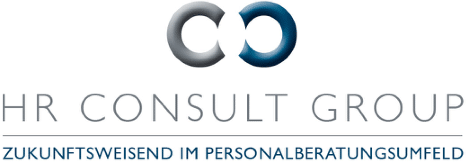Time to hire and time to fill: A comprehensive overview
Time to hire and time to fill are metrics that are crucial for evaluating the efficiency and effectiveness of the recruitment process in companies. But what exactly do these terms mean, how do they affect the company, and what solutions are available? In this blog article, we take a detailed look at these aspects and discuss how executive search by companies such as Senator Partners can optimize Senator Partners .
Basic explanation
Time to hire refers to the period of time that elapses from the initial contact with a potential candidate to the acceptance of the job offer. This metric measures the efficiency of the selection process and is an indicator of a company's competitiveness in the labor market.
Time to fill, on the other hand, refers to the time it takes to fill an open position—from the publication of the job advertisement to the final appointment. This metric provides information about how quickly a company can respond to staffing needs.
Recruitment process procedure
The recruitment process typically begins with identifying staffing needs and creating a job posting. This is followed by publishing the ad, collecting and reviewing applications, conducting interviews, checking references, and finally selecting and hiring the right candidate.
The process can be divided into several phases:
- Preparation: Creation of the job description and definition of requirements.
- Recruitment: Advertising the position and actively searching for candidates.
- Selection: Review of applicants, interviews, and evaluation.
- Employment: Preparation of quotations and conclusion of contracts.
Influencing time to hire and time to fill
Several factors can influence time to hire and time to fill:
- Complexity of the position: Specialized positions often require more time to fill.
- Candidate availability: In certain industries or regions, it may be more difficult to find suitable candidates.
- Efficiency of the recruitment process: A well-organized and well-thought-out approach can significantly speed up the process.
- Company image: An attractive employer attracts more and better-qualified applicants, which shortens the selection process.
Costs and risks
A long time to fill can result in significant costs, including lost productivity, overtime costs for existing employees, and potential lost revenue. There is also a high risk that highly qualified candidates will drop out during a long recruitment process and look elsewhere.
Solutions: Executive Search by Senator Partners
Executive search, as Senator Partners by companies such as Senator Partners , offers an effective solution to these challenges. Executive search is a specialized recruitment service that focuses on the targeted search and selection of executives and highly qualified specialists. Senator Partners by the following characteristics:
- Targeted approach: Specific candidates can be approached directly thanks to a broad network and in-depth market knowledge.
- Efficiency: The use of state-of-the-art technologies and proven methods speeds up the recruitment process.
- Quality: Thorough pre-selection and evaluation of candidates ensures that only the best talent is presented.
- Discretion: Confidentiality is crucial, especially for high-level positions, and is guaranteed by experienced consultants.
Conclusion
The metrics "time to hire" and "time to fill" are crucial to the performance of a company's recruitment process. A fast and efficient process minimizes costs and risks and ensures access to highly qualified talent. By utilizing executive search services such as those Senator Partners by Senator Partners , companies can optimize these processes and strengthen their competitiveness in the labor market. This not only leads to faster filling of open positions, but also to a better fit for candidates and long-term satisfaction for both parties.


